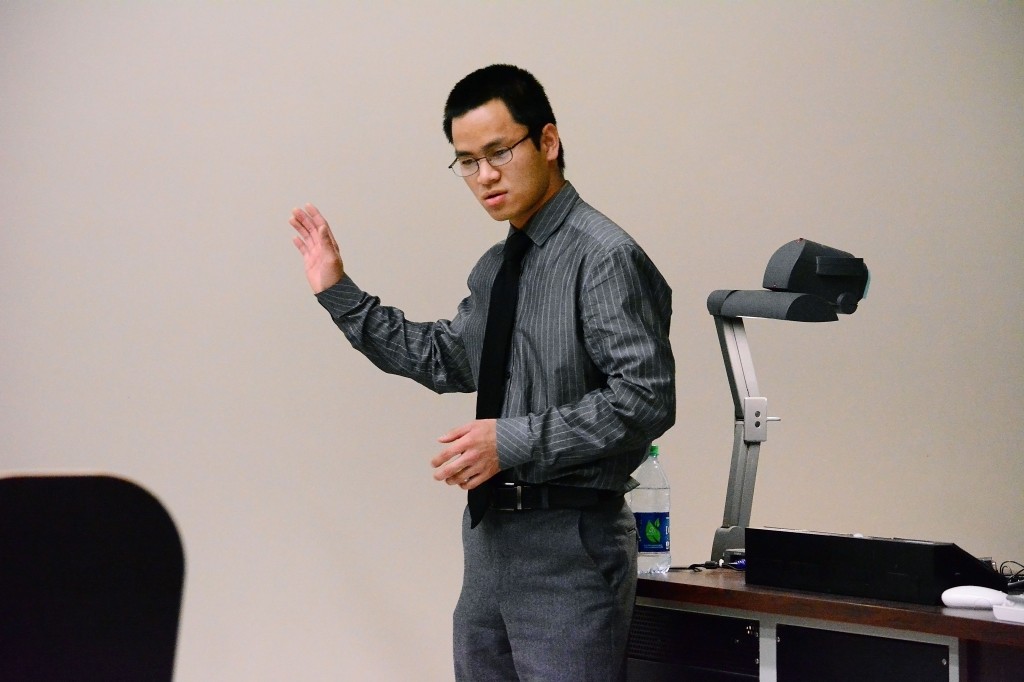
Growing up in the North Korean countryside, Justin Seo said he always dreamed of escaping his home country to explore the rest of the world. Little did he know that years later he would be in the United States speaking out about his experiences.
Seo was invited to campus by Binghamton University’s chapter of Liberty in North Korea (LiNK), an international non-profit organization dedicated to raising awareness and helping North Korean refugees. In his talk, “Escape from North Korea,” Seo detailed his experiences growing up in North Korea and escaping to the United States.
He described life in his village as paranoid: Most people who wanted to leave feared being exposed by a spy. Seo said his village was so isolated that many people knew nothing of life outside North Korea.
Seo and his father attempted to escape the Kim regime twice to seek better economic opportunities. In 2003, he made his way across the border into China by hanging onto the bottom of a train, but was caught by the Chinese police. He was deported and put in a North Korean prison for six months under terrible conditions.
“I’ve never seen human beings like that — hungry, starving and sick,” he said. “From there I knew I would never understand North Korea and I didn’t want to die there.”
Seo’s second attempt in 2005 was successful, and he escaped with his father and friends. According to Seo, it took them a little under two days to cross the Chinese border. They alternated between running and crawling, and were constantly checking behind them to see if they were being followed.
Seo moved to America after three years in China. When he arrived at John F. Kennedy International Airport in New York City, Seo said he was shocked by all the cars; it took time to adjust to American life.
“For the first year I only ate bread and rice with soy sauce,” Seo said. “American food was too greasy for me.”
Seo stayed at a shelter for refugees in New York City before moving to Rochester, New York. The rest of Seo’s family escaped from North Korea in 2007, but only his mother came to the U.S. Seo said he plans on continuing his education in computers and information technology and is constantly working on his English.
Although Seo previously spoke at BU in 2013, Kahlil Stultz, treasurer of LiNK and a senior majoring in history, said that his story needed to be shared again.
“He is a North Korean refugee who suffered from the hands of the Kim regime directly,” Stultz said. “We hope to raise awareness and make sure people are able to identify with North Korea in something that’s a little more substantial than ‘The Interview.’”
Ayla Alvarez, a senior in the individualized major program, said her previous perception of North Korea only came from documentaries, and she was fascinated by Seo’s firsthand account.
“I thought it was pretty crazy that it was this whole trial-and-error situation,” Alvarez said. “It was super interesting hearing that personal spin that you usually don’t get.”
Seo urged more dialogue on North Korea, and encouraged people to write to their congressman to pressure the Chinese government to help refugees.
“One human life is very important,” Seo said. “Dream and never give up hope, that’s most important.”


